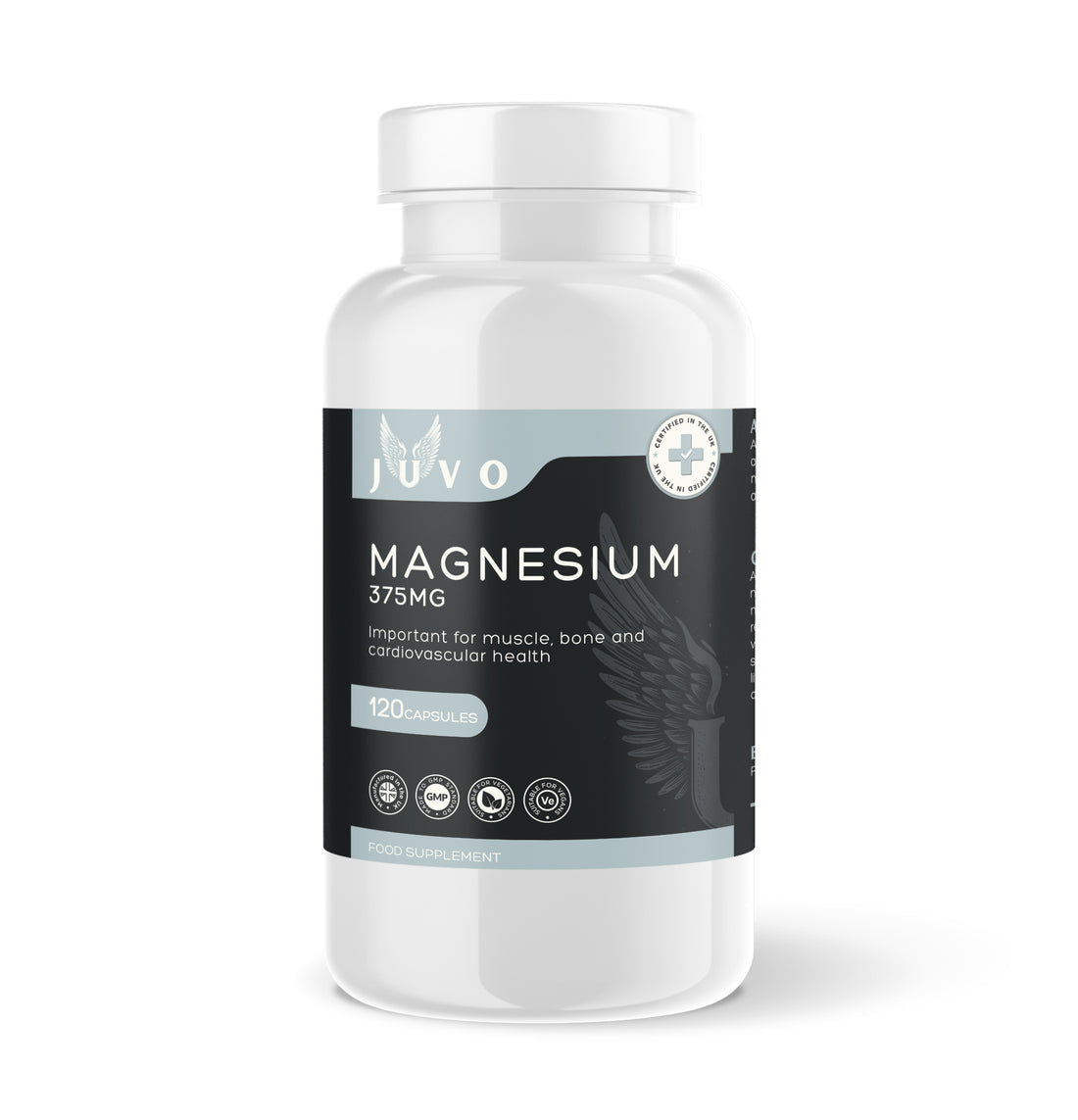
Understanding the Different Types of Magnesium in Supplements
Share
Magnesium is a vital mineral involved in over 300 biochemical processes in the body, including muscle and nerve function, blood glucose control, and protein synthesis. Given its importance, many people turn to magnesium supplements to ensure they get enough of this essential nutrient. However, not all magnesium supplements are created equal. Various forms of magnesium are used in supplements, each with its unique properties and benefits. Understanding these differences can help you choose the right magnesium supplement for your specific needs.
1. Magnesium Oxide
Magnesium oxide is one of the most common forms of magnesium found in supplements. It contains a high percentage of elemental magnesium, making it a popular choice. However, its bioavailability (the degree and rate at which it is absorbed into the bloodstream) is relatively low compared to other forms. This means that while it provides a high dose of magnesium, the amount your body can actually use is limited. Magnesium oxide is often used for its laxative effect and to relieve heartburn and indigestion.
2. Magnesium Citrate
Magnesium citrate is magnesium combined with citric acid. This form is more bioavailable than magnesium oxide, meaning it is more easily absorbed by the body. Magnesium citrate is often used to treat constipation due to its mild laxative effect. It’s also popular among those looking to boost their magnesium levels more efficiently and support muscle and nerve function.
3. Magnesium Glycinate
Magnesium glycinate (or magnesium bisglycinate) is a compound of magnesium and the amino acid glycine. This form is known for its high bioavailability and is less likely to cause digestive upset, such as diarrhea, which is common with other magnesium supplements. Magnesium glycinate is often recommended for those with a deficiency or those looking to support sleep and reduce anxiety, as glycine has calming properties.
4. Magnesium Malate
Magnesium malate is magnesium combined with malic acid, which is found naturally in fruits and gives them their tart taste. This form is well-absorbed and is known for its energy-boosting properties, making it a good choice for those with chronic fatigue syndrome or fibromyalgia. Malic acid plays a role in the Krebs cycle, which is the process your body uses to produce energy.
5. Magnesium Threonate
Magnesium threonate is a newer form of magnesium that is combined with threonic acid, a metabolite of vitamin C. This form is unique because it is believed to cross the blood-brain barrier more effectively than other forms, potentially enhancing cognitive function and memory. Magnesium threonate is often used for brain health and to support mental clarity and focus.
6. Magnesium Taurate
Magnesium taurate combines magnesium with the amino acid taurine. This form is particularly beneficial for cardiovascular health, as taurine helps regulate heartbeat, muscle contractions, and the overall function of the heart. It’s also known for its calming effects on the nervous system.
7. Magnesium Sulfate
Magnesium sulfate is often recognised as Epsom salts, commonly used in baths to soothe sore muscles and relieve stress. While it can be taken orally, it is more frequently used topically. When ingested, it can have a potent laxative effect and is sometimes used to treat magnesium deficiencies and constipation under medical supervision.
8. Magnesium Chloride
Magnesium chloride is another highly bioavailable form of magnesium, easily absorbed and utilised by the body. It is often used to support overall magnesium levels, relieve muscle cramps, and improve hydration. This form is also available in topical solutions, such as magnesium oil, which can be applied directly to the skin.
Choosing the Right Magnesium Supplement
When selecting a magnesium supplement, consider your specific health needs and any conditions you may have. For general supplementation and muscle support, magnesium citrate or magnesium glycinate are excellent choices due to their high absorption rates and minimal side effects. If you’re looking to improve energy levels, magnesium malate might be the best option. For cognitive support, magnesium threonate could provide added benefits.
We've combined Magnesium Bisglycinate, Magnesium Malate and Magnesium Taurate (as well as Vitamin B6) in our formula to support longevity.
